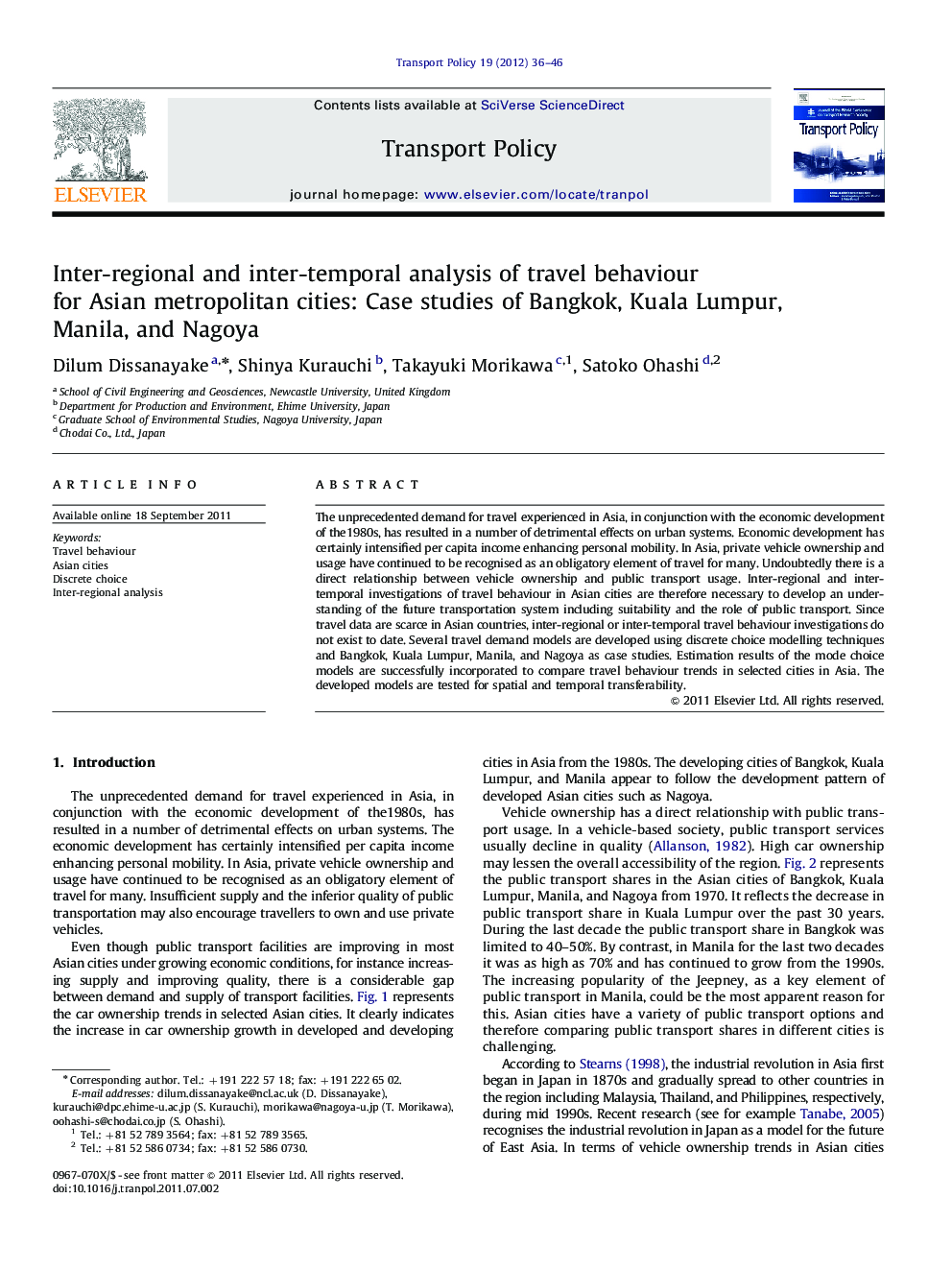| Article ID | Journal | Published Year | Pages | File Type |
|---|---|---|---|---|
| 1065146 | Transport Policy | 2012 | 11 Pages |
The unprecedented demand for travel experienced in Asia, in conjunction with the economic development of the1980s, has resulted in a number of detrimental effects on urban systems. Economic development has certainly intensified per capita income enhancing personal mobility. In Asia, private vehicle ownership and usage have continued to be recognised as an obligatory element of travel for many. Undoubtedly there is a direct relationship between vehicle ownership and public transport usage. Inter-regional and inter-temporal investigations of travel behaviour in Asian cities are therefore necessary to develop an understanding of the future transportation system including suitability and the role of public transport. Since travel data are scarce in Asian countries, inter-regional or inter-temporal travel behaviour investigations do not exist to date. Several travel demand models are developed using discrete choice modelling techniques and Bangkok, Kuala Lumpur, Manila, and Nagoya as case studies. Estimation results of the mode choice models are successfully incorporated to compare travel behaviour trends in selected cities in Asia. The developed models are tested for spatial and temporal transferability.
► Discrete choice technique is appropriate for comparing travel behaviour settings in various cities. ► Male travellers in Asian cities demonstrate greater propensities for car and motorcycle use. ► Interregional transferability of the models is not possible across the cities in Asia.
